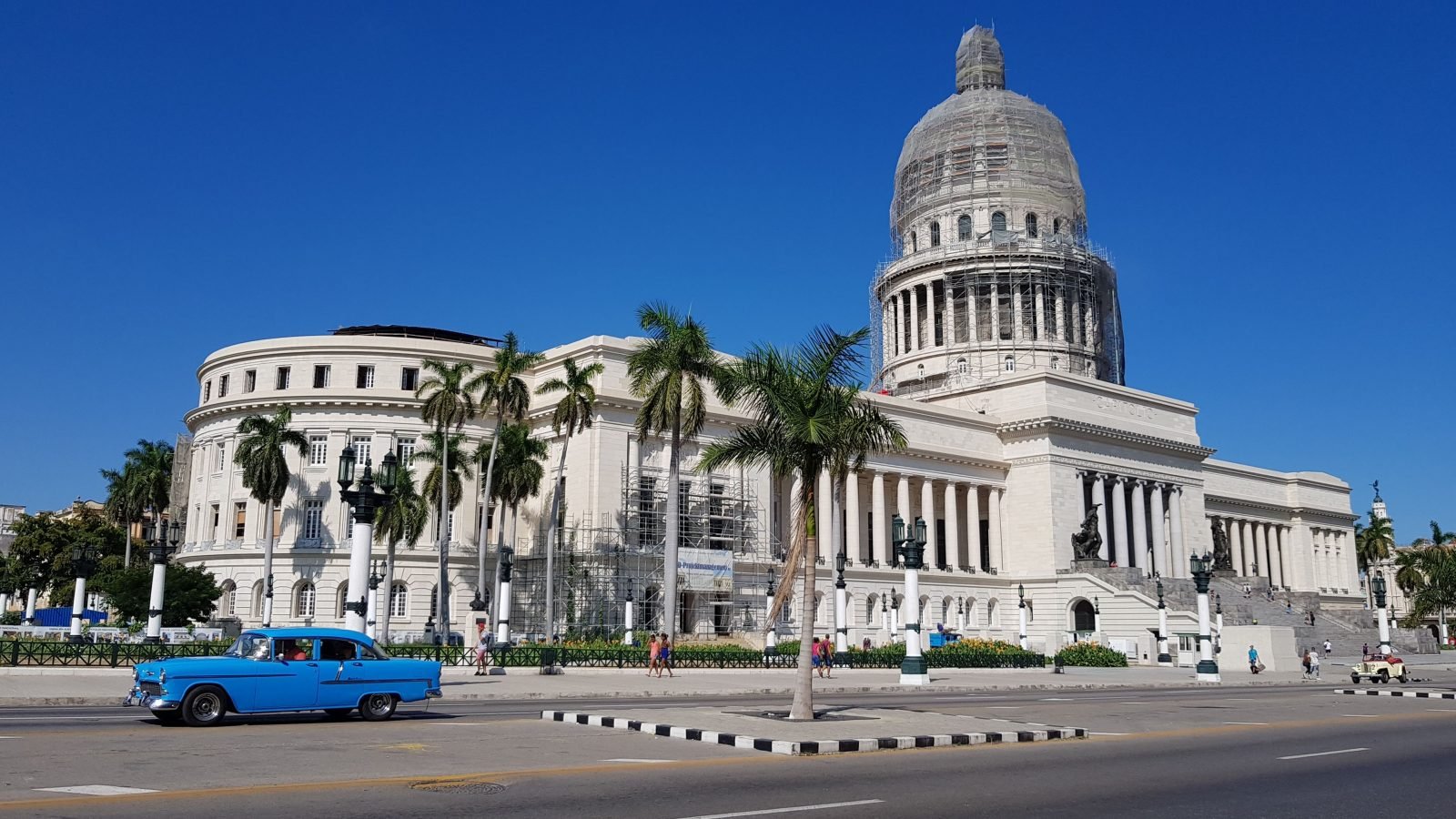Bali is a wonderful island, to which some want to come again and again, and some spit and says “What are they all flocking there for?”. I came back to Bali a few times myself and what do you think? The same places and the same people, through the same eyes, seemed completely different. What is the secret? The expectations would be my answer. Bali might be a paradise, it might be not, but the good news is that it all depends only on you! All you need to do is just a little bit of preparation, that is, not only for the financial and geographical parts of the trip but also you should prepare yourself mentally.
I went through all these experiences myself, quite often I hear about the same impressions from others who came here, so I share the 20 things which made my traveling around the island much more enjoyable once I discovered and accepted them. I hope it will make your traveling more enjoyable as well. Some of these things don´t surprise me anymore, some still bring me a bit of challenge, but in spite of everything, to me, Bali is a paradise.
- Attention! Taxi drivers are awaiting you at the airport
- There are (almost) no traffic rules in Bali
- Often there are no pavements or the pedestrians have to share them with scooters and cars
- No-one gives way to pedestrians at the crossings
- Measure the trips in hours, not in kilometers
- Expect European standards in Europe, and here it’s Bali
- There is a lot of rubbish in Bali
- You’ll need to search for the postcard-like beaches that seem like a paradise
- Smoking is allowed everywhere
- They know you have just arrived
- White person => rich person => walking sack of money
- Like it or not – you’ll have to bargain (unless you correspond 100 percent to section no. 11)
- Tap water is not potable
- Privacy is understood relatively
- Freshly squeezed juices are so tasty because of added sugar!
- Cash is king
- Congratulations! Suddenly you´re a star!
- The knife is not a common utensil in local “warungs” (i.e. cafes)
- Dogs and hens are running in the middle of the street, and barking and cackling is heard from the very morning
- It gets dark early in Bali
1. Attention! Taxi drivers are awaiting you at the airport
If you expect that after landing at the airport of Denpasar (the capital of Bali) you will be able to conveniently take a bus or a metro to get to the desired spot of the island, you will be very disappointed. There are no such things here, but there is a huddle of taxi drivers ready to take you “anywhere” for “any price”. If you are not wishing to go “anywhere for any price”, I recommend arranging a pick-up prior to your arrival. You can arrange it with the hotel where you are planning to stay, ask for recommendations from the ones living here, or you might try using Uber or Grab apps as well. And if you haven’t planned it beforehand, don’t get scared of all the drivers attacking you, but simply walk a little further, take a deep breath, organize your thoughts and you’ll see that even bargaining with them is not something impossible.
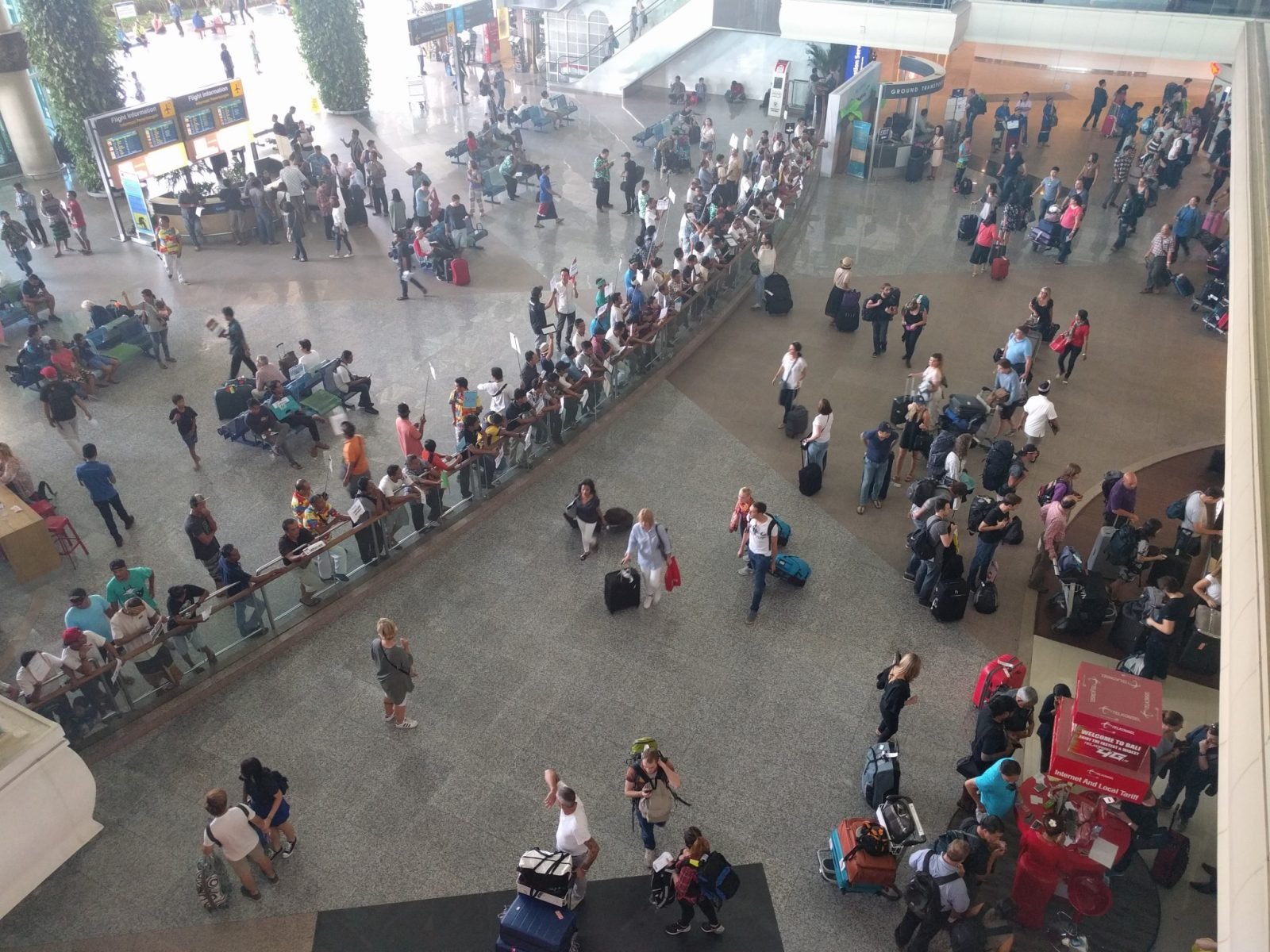
2. There are (almost) no traffic rules in Bali
Well, you rent a first-in-you-life scooter (or hire a driver) and you are full of joy at the thought of how you will now scoot everywhere! Hm… The very first second you will feel that everyone around is signaling, passing by ignoring the solid road lines, driving upon red traffic light, getting on pavement if needed, often driving on the opposite side of the road and so on. Relax, don’t rush anywhere, and, most importantly, don’t get nervous, after all, you are not going to change anything :). Immerse yourself into this natural chaos and soon you will see, that nonetheless, it is somehow working. I call it the “natural principle of self-regulation”.
Regarding the word “almost”: basic rules, such as the red traffic light or priority to the left (Bali has left-hand traffic) are respected in bigger cities or in bigger and more intensive streets, so don’t scoot absolutely boldly.

3. Often there are no pavements or the pedestrians have to share them with scooters and cars
This fact was and still is one of those that I find it hard to accept. In the Western world already for some time, we are all encouraged to move as much as possible, to walk, to explore the surroundings by foot and we are so happy about it. Unfortunately, in Bali, it might not always prove to be a delight. In the large part of the island the roads are not wide, there are no sidewalks, so you will be walking on the driving lane. Quite often the state of the pavements is really poor so it is necessary to keep looking under your feet to make sure your exploration of the surroundings doesn’t end up in a hospital with a broken leg. By the way, did I mention that it is quite common in Bali to use pavements when there is a traffic jam and scooters want to pass it by? Or when someone wants to park a car and doesn’t want to take too much space on the driving lane?
NB! When planning to walk by foot in many places in Bali, you will understand that sometimes it is mission impossible.
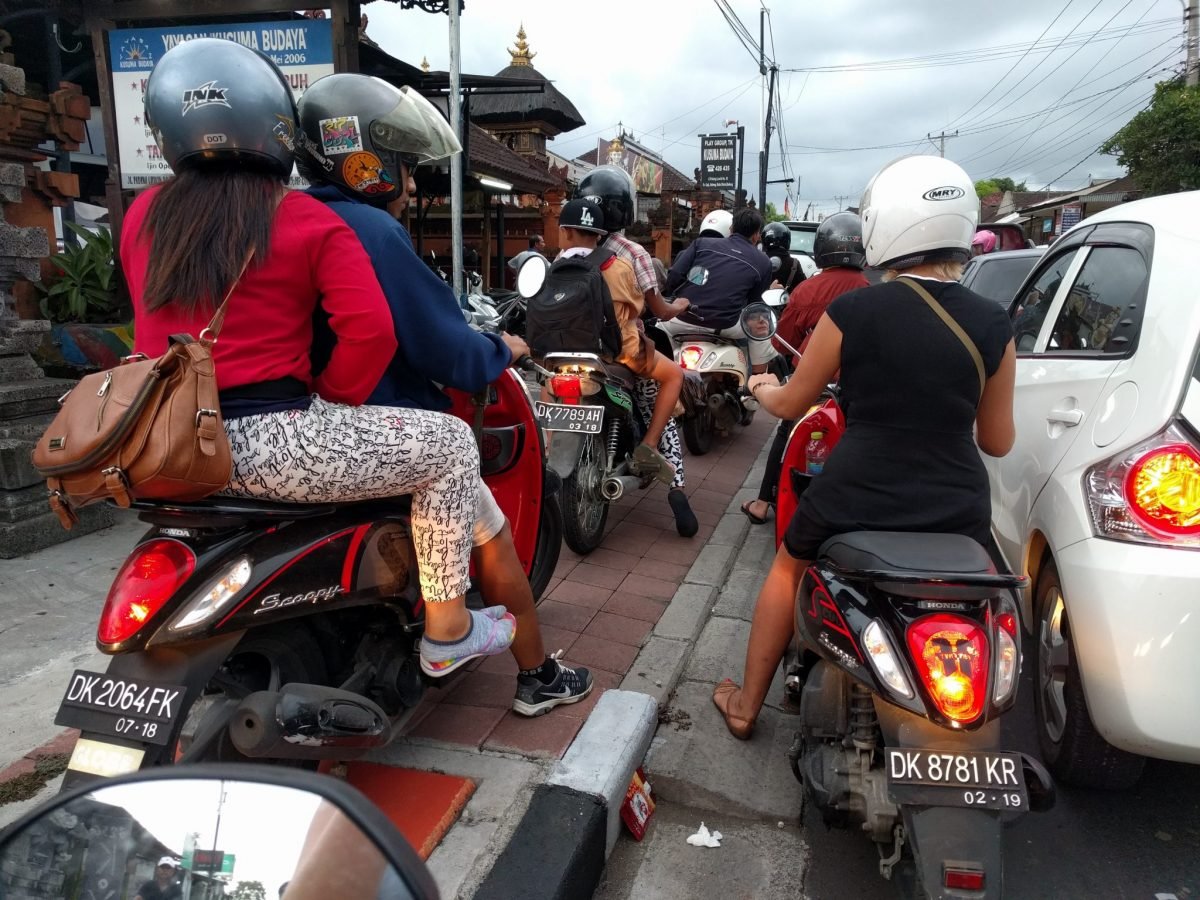
4. No-one gives way to pedestrians at the crossings
Yes, it is yet another feature of Bali and Southeast Asia in general. Honestly, you might stand around for half an hour waiting for someone to stop. The traffic is usually intensive, the scooters are running into every direction, so what to do? Breath in, look around and start walking raising an open palm towards the vehicles coming to you which means that you have been standing enough and now are already willing to get to the other side of the street. And of course, intensively send to the universe a strong wish that the vehicle coming to you would stop on time…
5. Measure the trips in hours, not in kilometers
Very often, helping to make up the itineraries, I hear comments such as “Oh, it’s pretty close” or “Yeah, I see on the map the distance is short”. The distance in Bali is measured in hours, not in kilometers because you might need the whole hour for 20 km if you are riding on the Denpasar streets full of traffic jams or on small serpentine roads in the north (and not only). It’s best to follow the approximate time indications of Google or other navigation systems, this way you won’t be fooled and won’t have planned to visit too much. Also, it is always worth consulting with the experienced ones who have already traveled around the island.
6. Expect European standards in Europe, and here it’s Bali
If upon coming to Bali, you expect that everyone here will be punctual, will know English well, will be giving advice free of charge, will consider all the details and suggest you the best option, and the prices will be stated clearly everywhere, you will be disappointed. It is NOT Europe or any other Western country, it is Southeast Asia, which is still developing and where the majority of people don’t overwork for high standards, don’t rush anywhere, and many things, that we would call “problems”, here are taken less seriously or ignored at all. I could name the whole list of the examples, but common advice is very simple: if in any situation you feel astonishment, anger or notice that the questions like “How can they behave like this?!”, “Why are they late?!”, “But I want it this way or another” are arousing, remember that you are a guest in a country of a different culture. It will be easier for yourself once you accept this fact, prepare yourself for anything on the trip, start dealing with the situations leniently and with a smile, WITHOUT expecting everything to be ideal, and start telling critics and comments to the locals politely with an honest smile on your face.
By the way, it’s a pleasure to see that as the tourism is growing, there appear more and more locals that understand the needs of the travelers and I can really be glad that after living a while on the island, I have managed to find trustful partners (drivers, guides, etc.), which I can confidently recommend when someone asks.
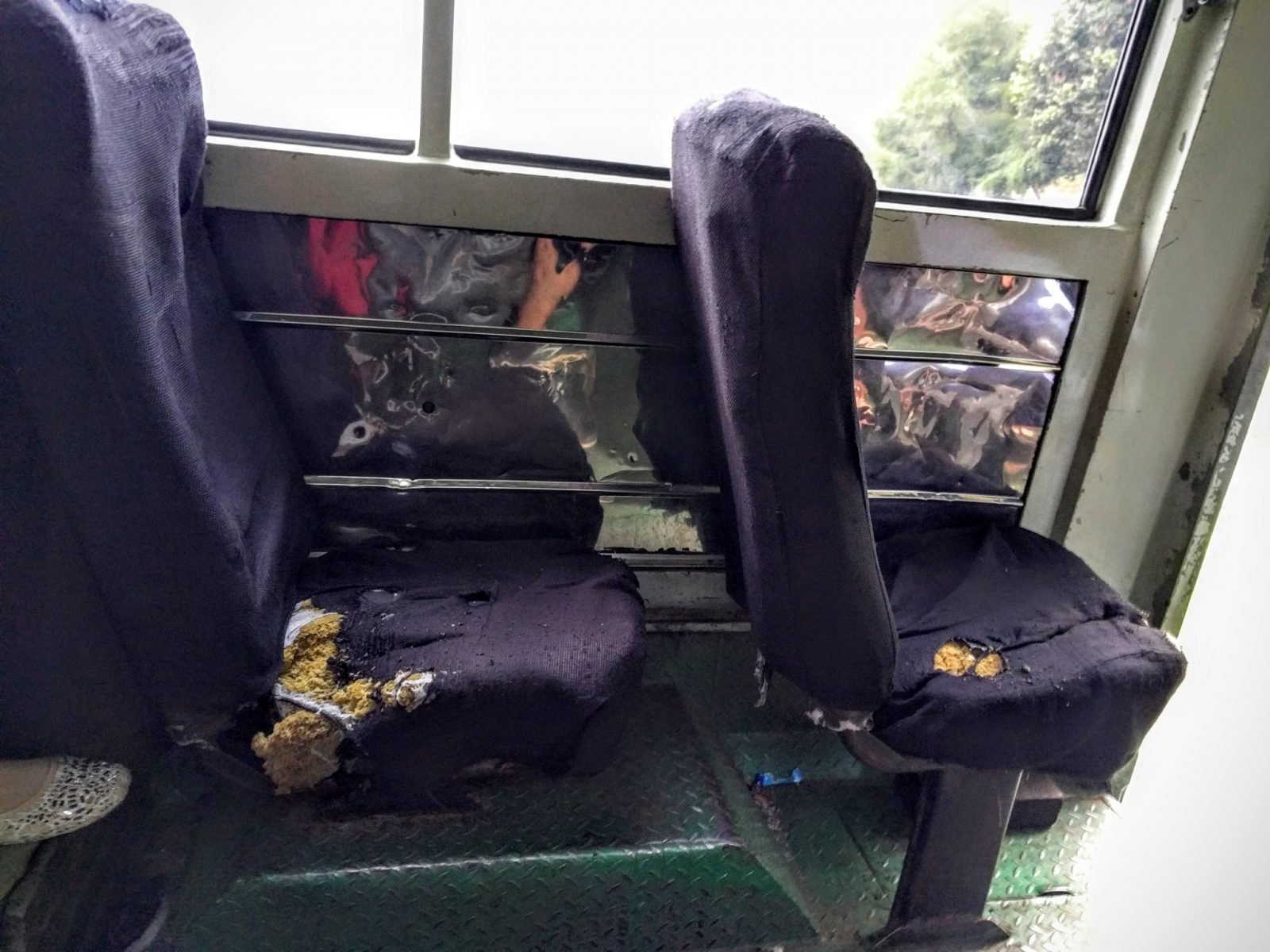
7. There is a lot of rubbish in Bali
And this is a sad truth. While traveling around the island, you will definitely see piles of rubbish in many places, quite often streets, beaches, rivers, and jungle are full of it, likewise, the view of rubbish being thrown through a window of a running car is rather common. As much as I have investigated, it all goes this way because only a few decades ago there was almost no plastic on the island and all the dishes were made of organic materials, e.g. banana leaves. Obviously, they were not sorted in any way but simply thrown away after use as later they would decay naturally without causing any harm. As the tourism industry grew rapidly, more and more plastic started circulating and the habit of throwing the rubbish on the side remained. What should we do about this? We should keep this in mind before the trip, and once we arrive, we should use plastic bags, cups or bowls as little as possible ourselves.
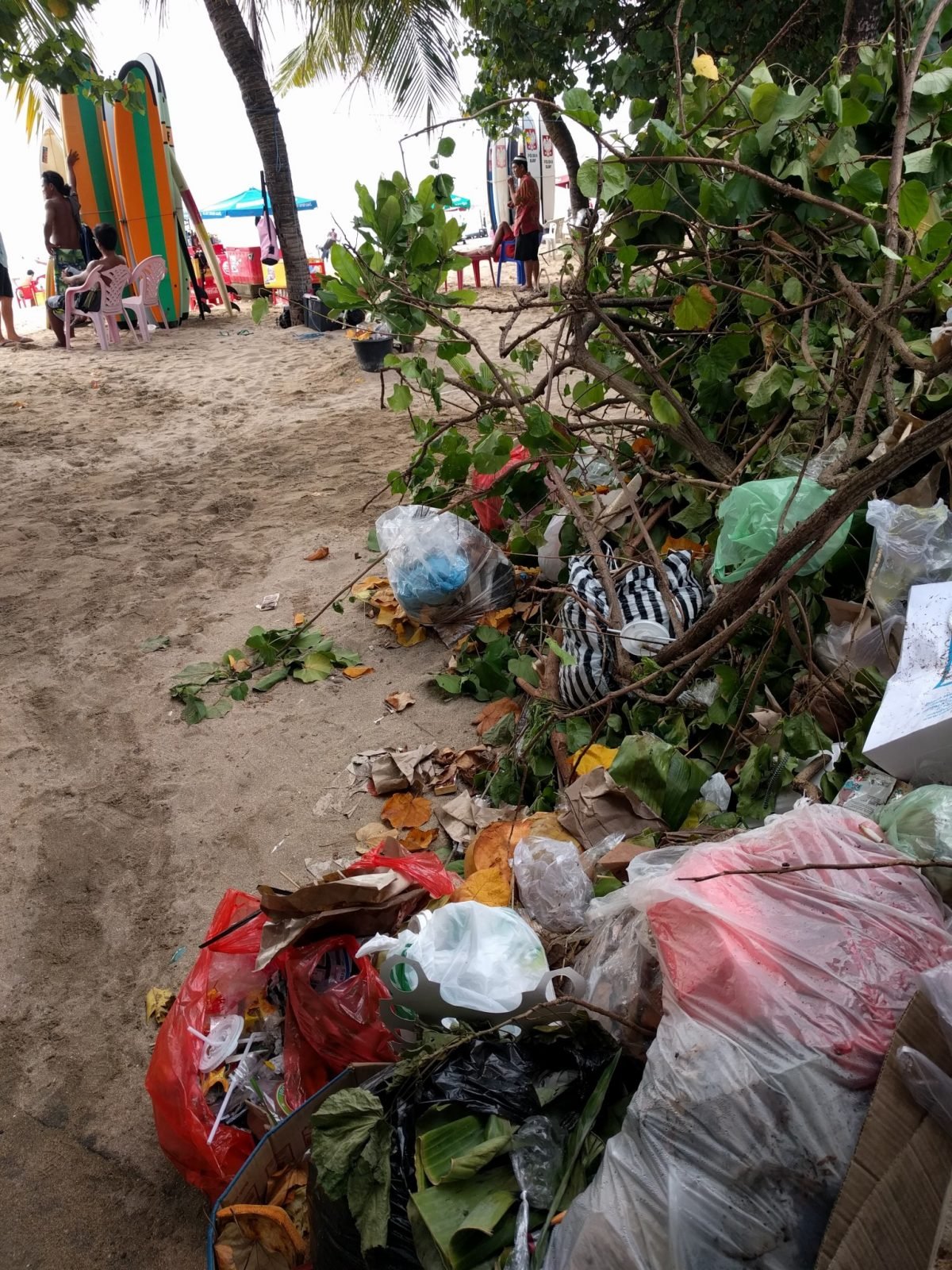
8. You’ll need to search for the postcard-like beaches that seem like a paradise
To be honest, personally, to me it was one of the biggest disappointments because before coming to the island I was seeing everywhere pictures of white sand and turquoise waters. I thought that on this small island I would be able to easily get to the beach to have a swim or enjoy a sunbath at any time I wished. Well, shortly about the variety of the beaches:
In the north, the sand is black because of the volcanos. Meanwhile, the water is calm, there are no waves, it is suitable for diving.
In the west, the color of the sand goes from black towards a little lighter but still, it is neither white nor overall impressive.
In the south (Uluwatu, Bukit peninsula) the beaches are rocky with yellow sand, somewhere suitable for swimming, somewhere for surfing, there are quite a few nice bars to watch the sunsets.
In the east the sand is black, turning into yellowish, there are some white sand beaches.
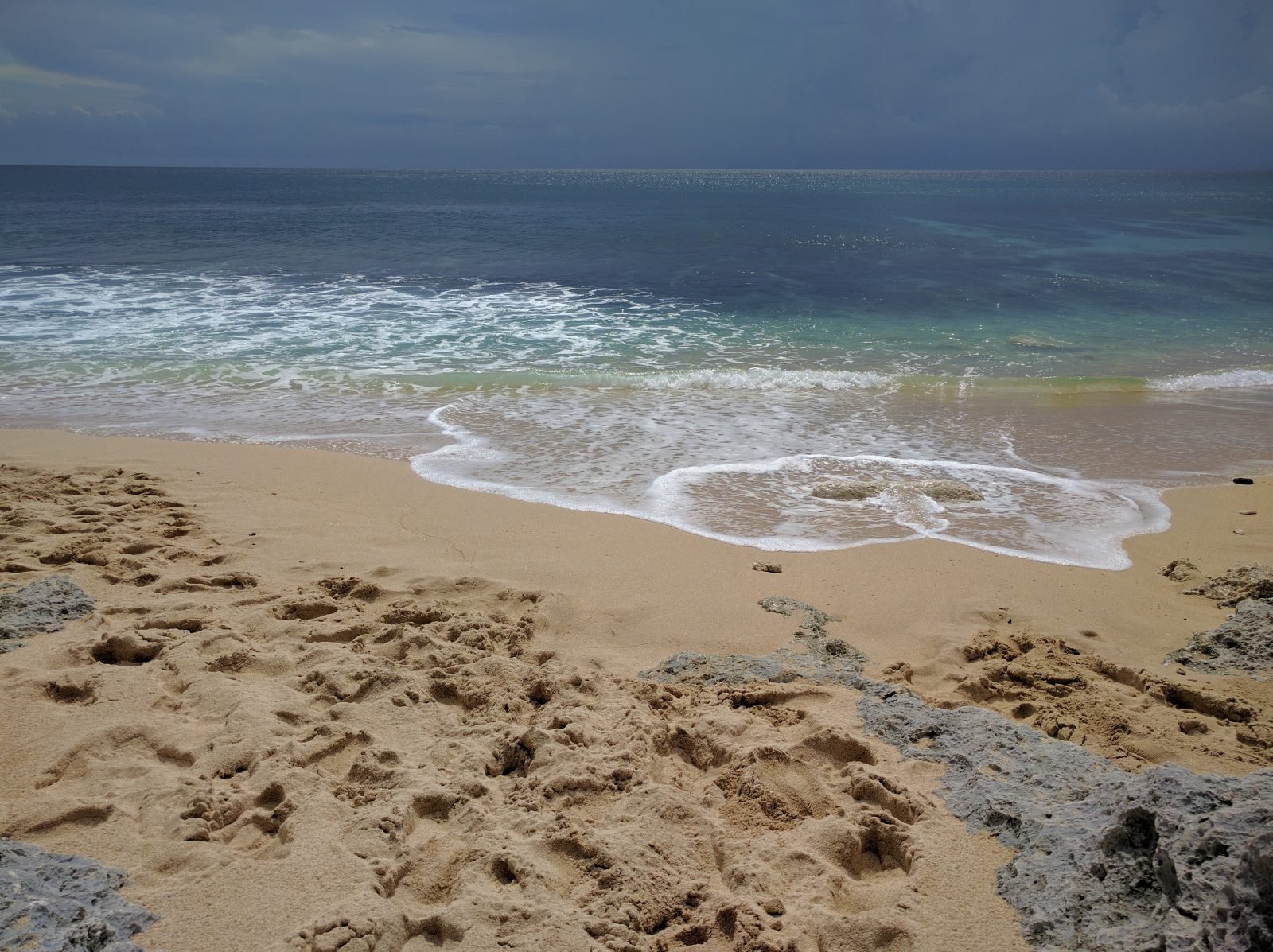
9. Smoking is allowed everywhere
In Bali, as, by the way, in the whole of Indonesia, smoking is allowed everywhere and cigarettes here are really cheap. Don’t be surprised and don’t turn up your nose when a local or a foreigner sitting next to you is puffing smoke while you are having lunch in a restaurant. Well, actually you might turn up your nose, but you will only get a sulky face back because you are sulky yourself, and the smoking will continue anyway…

10. They know you have just arrived
And it´s not just a pale skin that conveys this. Remember that feeling when right after coming to the country you watch at everything with wide eyes, you want to touch all the unseen souvenirs, examine them, and just passingly inquire “How much it costs?” and, God forbid, try some piece of clothing without the intention of buying it! And then don´t be surprised when half of this stuff ends up on you and a tiny lady glaring at you attempt to press you by yelling “You promised to come back! You promised to buy!”. Also, don’t be surprised that in every second step you’ll keep hearing “Taxi!”, “Motorbike!”, “Massage!”.
11. White person => rich person => walking sack of money
Exactly because of this stereotype don’t be surprised that at the market, at the hospital or elsewhere you will hear a price twice or higher than a local would hear. It is also worth knowing that the tickets at the sights are more expensive for tourists than for the locals. By the way, this is quite understandable and exists not only in Bali, this way the government is encouraging domestic tourism by partly covering the costs for the residents of the country. But in general, you are white, plus a tourist, so you have a lot of money, thus locals will tell straight out “Oh… but you are rich…”. What to do with this? Read section no. 12.
12. Like it or not – you’ll have to bargain (unless you correspond 100 percent to section no. 11)
Because if you don’t bargain, even locals will be surprised what is wrong with you?! Because if you don’t bargain, they will get used to it and in the future won’t make discounts for other travelers. Because if you don’t bargain, you will simply pour money down the drain and will overpay absolutely irrational sums. Furthermore, you can bargain basically anywhere, even at the hotels if you’re staying, for example, three or more days. Well, maybe only in the restaurants and cafes the prices are set and no-one bargains here. Basically everywhere else, forget the modest European discount of 25 percent and slash everything at least by half.
13. Tap water is not potable
For us, living in Europe, and especially in Lithuania, where there is no problem of potable water at all, it might be a little unusual in the first days of the trip. As the country is tropical and there is plenty of heat and sun, you’ll definitely want water. I always carry with myself a small water bottle which is made of sun-resistant plastic, has optimal size and a possibility to be refilled. And as for brushing the teeth… I use the tap water, I don’t swell it anyway and, overall, it’s not the worst thing we consume throughout our lives…
14. Privacy is understood relatively
Or it is true to say that actually it is not understood. More than once I have been in a situation where I, for example, eat, sit, read, travel somewhere (especially in the public transport), do something, and some local is staring at me or, moreover, points at me so that the one sitting next to him would also look together (yes, and there’s absolutely no exaggeration). Well, it seems to me that he is staring, and it seems to him that he is looking at something he has never seen in his life before, and there’s the only difference in how he expresses his astonishment. In Lithuania we, of course, wouldn’t stare so openly, probably wouldn’t point, but here people are open – they do as they feel.
15. Freshly squeezed juices are so tasty because of added sugar!
Oh yes! “Indonesia is sweet”, say the locals that are crazy for sugar. More than once I have seen how they put at least a couple of tablespoons of sugar into a cup of tea, cause it’s so tasty, isn´t it! Quite often here sugar is added to coffee, tea and, yes, to freshly squeezed juices, by default. So, when you are ordering some drinks at a cafe, make sure to ask it without sugar, in the local language it would be “Tanpa gula”.
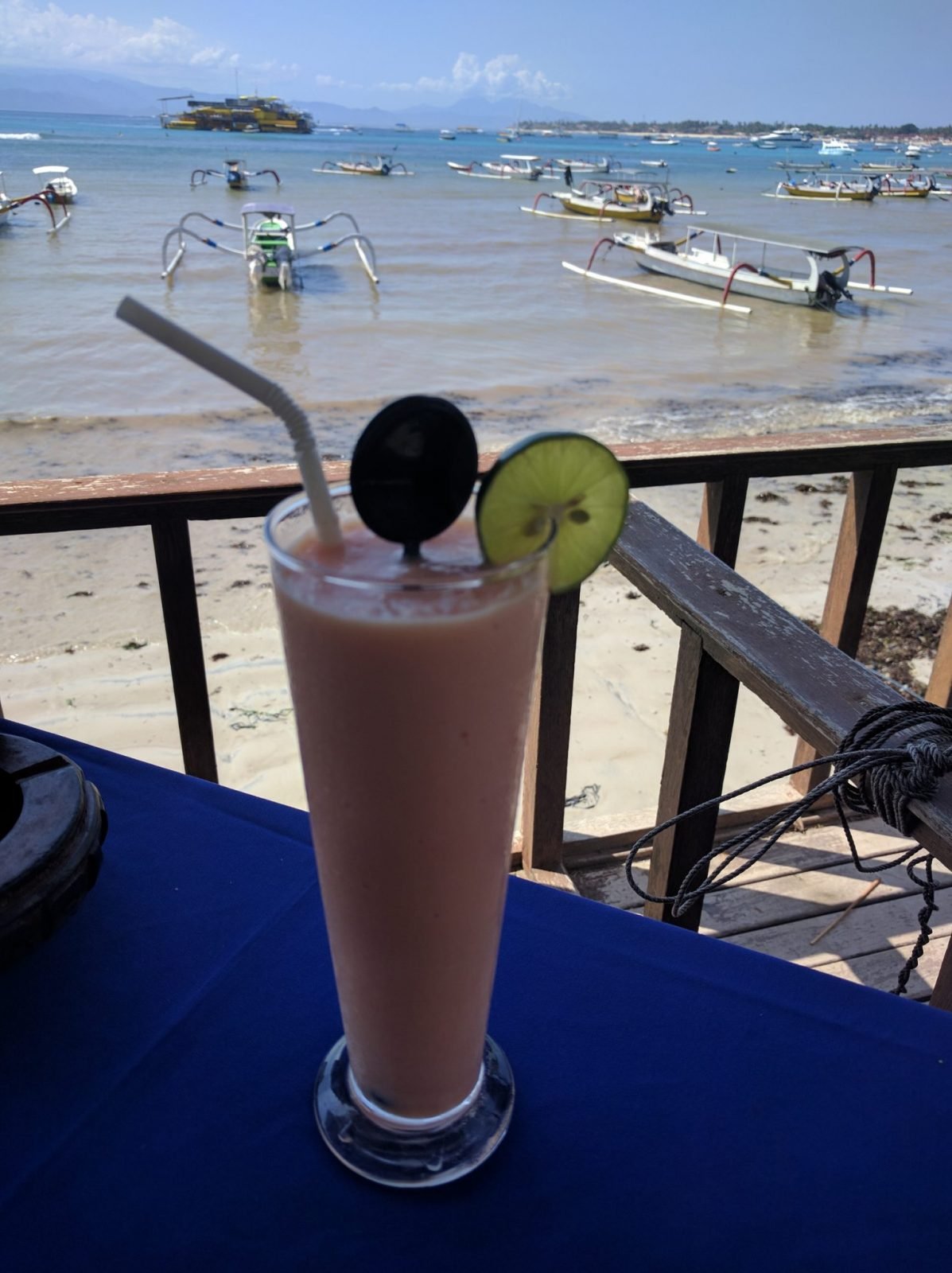
16. Cash is king
Maybe it doesn’t seem big trouble, but… When you arrive, exchange 100 euros and have more than a million in your pocket, then you understand that the money is literally tearing your wallet apart. Especially in the first days, it’s quite tricky not to get lost in the zeros and colors of the banknotes and more than once I was chased by someone from a bar or a cafe because I had left 2000 IDR instead of 20000 IDR, oops… With no bad intentions, really. It is worth having a practical bigger travel wallet and also to remember that in many places payments by cards aren’t accepted or a payment fee of 2-3 percent is applied.

17. Congratulations! Suddenly you´re a star!
I mean… I mean that for some reason in Indonesia people exceptionally love white-skinned westerners and necessarily want to take a picture, usually a selfie, with them. Bali is already quite accustomed to foreigners though locals coming from other islands will look at you with wide eyes. And if you travel to other islands, be prepared – the more remote the island, the more attention to you, constant queries to make together some 20 selfies a day and so on.

18. The knife is not a common utensil in local “warungs” (i.e. cafes)
As I wrote earlier, Bali is rather a touristic island, and in the tourist restaurants and cafes knife is not a curiosity anymore, but if you are planning to try local “warungs” (cafes), usually you will find a spoon and a fork there. After practicing a little, you’ll get used to it and it will get quite convenient. More seldom in Bali, but more often in other islands, you will see locals eating simply with hands. Try it, why not? They say this way it’s even tastier.

19. Dogs and hens are running in the middle of the street, and barking and cackling is heard from the very morning
There are plenty of dogs in Bali and hens are basically dwellers of every house. Besides, dogs and hens here surely aren’t chained, so it’s absolutely normal to see them running in the middle of the street. It is important to bear this in mind because you might not always notice them immediately when driving, for example, in the dark time of the day. Besides, dogs often lie down quietly, resting and not even thinking of moving away. Let’s keep the animals and our conscience safe.
And of course, dogs keep barking, hens keep cackling and roosters keep crowing in many places and very often throughout a day.
20. It gets dark early in Bali
It gets dark in Bali around 6.30 – 7 p.m. and it happens rather quickly. You just turn around and in some fifteen minutes, it’s already dark. It was one of the things that I could hardly perceive. How come, it’s warm, it’s summer, and it’s already dark at 6.30 p.m.? Because in Lithuania warmth is associated with summer, and summer, respectively, with long days. After a while I got used to it, began to get up earlier to make the most of the daylight and I began to schedule itineraries accordingly as driving in the darkness is no pleasure. It is worth having in mind the early darkness, as naturally, you might want to plan a long active day and it might just end up sometime earlier.
I understand that when you are looking forward to your holiday, to your dream journey, you might not want to read or see some kind of negative information, you might want to think that it is just some pessimistic person grumbling. I am an optimist by nature and usually, I see good things even where others don’t, therefore, I share this information more like an experience which, after accepting it, will help to see all the beauty and positivity simply sooner. Good luck!


